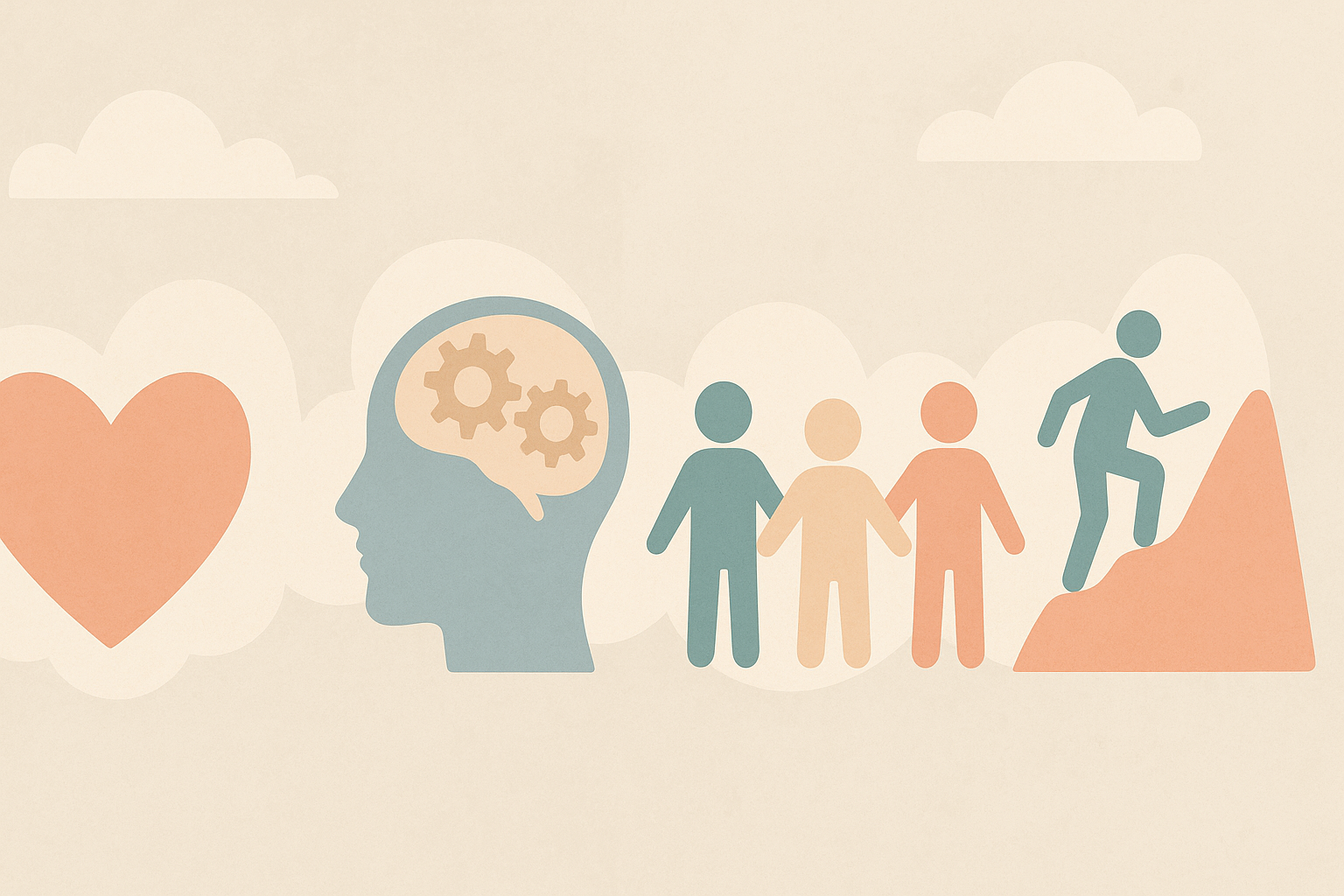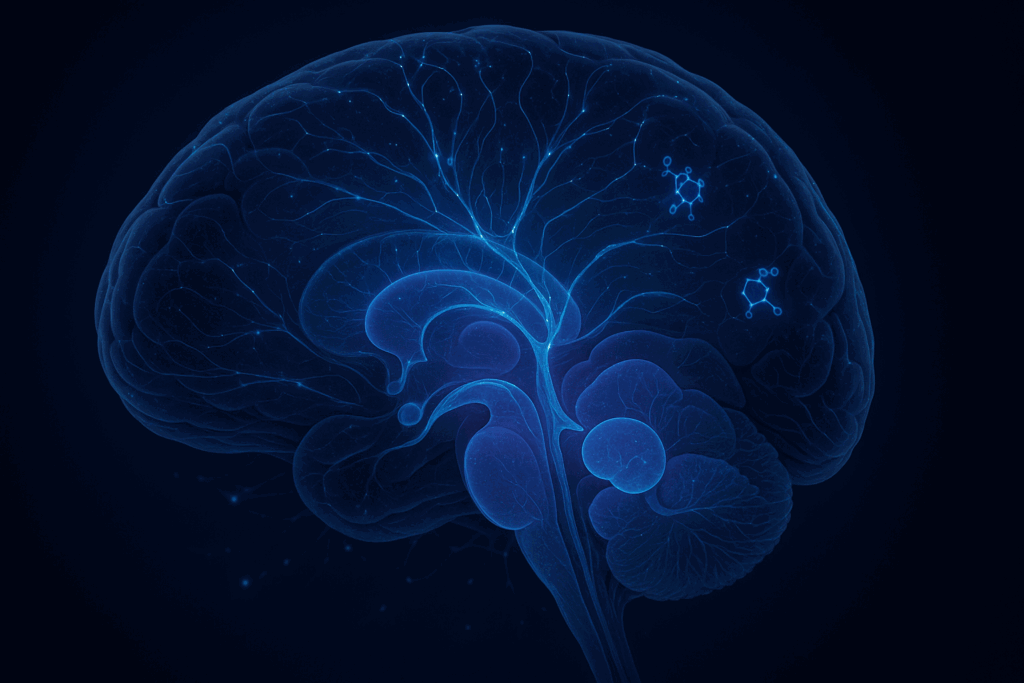In today’s fast-paced world, where productivity and achievement are often placed above personal well-being, a growing body of research points to an essential, often overlooked question: why should we care about mental health? Especially in the context of motivation and peak performance, the intersection of mental health and human drive reveals a powerful dynamic that can either uplift or undermine our goals. For college graduates and professionals alike, understanding this relationship is more than academic; it is critical for achieving long-term success and fulfillment. This article explores the deep, bidirectional link between motivation and mental health, illustrating how mental well-being is not a passive backdrop but an active force shaping every aspect of human performance.
You may also like: The Essential Mental Shift: How to Train Your Mind to Be Stronger for Peak Performance

Understanding the Description of Mental Health: Beyond the Basics
Mental health, often discussed in generic terms, requires a nuanced, multi-dimensional understanding to grasp its impact on performance and motivation. The commonly accepted description of mental health encompasses emotional, psychological, and social well-being. However, this definition only scratches the surface. Mental health also includes cognitive functioning, the ability to manage stress, form relationships, and make decisions. It influences how individuals interpret experiences, respond to challenges, and engage with their environment.
One critical insight into the description of mental health is that it does not simply denote the absence of mental illness. Instead, it refers to the presence of positive characteristics, such as resilience, self-efficacy, and a balanced mood. These attributes are foundational for maintaining high levels of motivation over time. A mentally healthy individual is not just free of anxiety or depression; they are equipped with the psychological tools necessary to pursue goals, adapt to change, and recover from setbacks.
The implications of this expanded view are significant. For instance, a person who experiences persistent self-doubt or cognitive fatigue may appear outwardly composed but may lack the internal stability required for sustained motivation. Mental health, therefore, becomes a determinant not only of emotional well-being but of the capacity to perform under pressure. When discussing peak performance, this deeper description of mental health reveals its undeniable relevance.

The Neuroscience of Motivation and Mental Health
Advances in neuroscience provide compelling evidence for the biological intertwining of motivation and mental health. Brain regions such as the prefrontal cortex, amygdala, and hippocampus play central roles in regulating both mood and goal-directed behavior. Dopamine, often dubbed the “motivation molecule,” is not only critical for reward processing but is also implicated in several mental health conditions, including depression and ADHD.
For example, individuals with depressive disorders often exhibit hypoactivity in the brain’s reward pathways. This neurological underactivity results in anhedonia—the inability to feel pleasure—which can decimate motivation. The neurochemical overlap between emotional states and motivation suggests that mental health disorders can directly impair one’s ability to pursue and achieve goals. Conversely, enhanced mental well-being can amplify motivation through increased neural efficiency and resilience.
This brain-based connection underscores the need for integrated approaches to health and productivity. By prioritizing mental health, individuals can effectively boost the neurological mechanisms that underlie motivation. The inverse is also true: neglecting mental health can lead to decreased neural responsiveness, making even small tasks feel insurmountable. Understanding this neurobiological symbiosis can help demystify why motivation often falters in the face of psychological stress.

Why Should We Care About Mental Health in Academic and Professional Settings?
Educational and professional environments are often pressure cookers of expectation and competition. Within these contexts, the question of why should we care about mental health becomes particularly urgent. For students and employees alike, cognitive performance, creativity, and perseverance are all deeply linked to mental well-being. Institutions that fail to recognize this link risk cultivating burnout, disengagement, and high attrition rates.
Academic settings, for example, demand high cognitive load, prolonged focus, and adaptive learning—all of which are compromised under psychological strain. Students facing anxiety or depression may struggle with executive functioning, affecting their ability to plan, prioritize, and complete tasks. This diminished capacity directly interferes with academic motivation and performance.
In workplaces, mental health shapes not only individual productivity but also team dynamics and organizational culture. Employees experiencing mental distress are more likely to exhibit absenteeism, presenteeism, and reduced collaboration. Motivation, in this context, is not merely an individual trait but a workplace resource that requires active cultivation. Caring about mental health is thus not only a compassionate choice but a strategic imperative.
Debunking Myths: Is Mental Health Real?
Despite growing awareness, skepticism around mental health remains prevalent in many circles. Questions such as “Is mental health real?” reflect a lingering stigma that undermines both individual care and systemic progress. The reality, supported by decades of research, is that mental health is as real and measurable as physical health. Brain imaging, biochemical markers, and behavioral analyses all attest to the legitimacy of mental health conditions and their impact on daily functioning.
The misconception that mental health is intangible or exaggerated often stems from its invisibility. Unlike a broken bone or a visible wound, mental health struggles do not always manifest physically. Yet, their effects—fatigue, lack of focus, emotional instability—are no less real. Neuroscience, psychology, and psychiatry have all converged to establish mental health as a critical domain of health science.
Furthermore, the assertion that mental health is real is corroborated by economic data. The global cost of untreated mental illness runs into the trillions, affecting everything from workforce productivity to healthcare systems. Recognizing mental health as a legitimate concern enables earlier interventions, more effective support systems, and ultimately, a more motivated and resilient population. The question, therefore, should not be “Is mental health real?” but rather, “What can we do to support it effectively?”

Mental Health Importance in Goal Pursuit and Long-Term Success
The importance of mental health in achieving long-term goals cannot be overstated. Motivation is rarely a static force; it fluctuates based on internal and external conditions. Mental health serves as the stabilizing agent that sustains motivation over the long haul, allowing individuals to navigate setbacks, delays, and disappointments without losing sight of their objectives.
Consider the example of entrepreneurial ventures. Founders often face prolonged uncertainty, financial stress, and high-stakes decision-making. Without mental fortitude, sustained by good mental health, these stressors can erode confidence and derail motivation. The same applies to academic researchers who must persist through long periods of experimentation and revision. In both cases, the ability to stay motivated is intimately tied to psychological resilience.
Mental health also enhances goal clarity and prioritization. When individuals are mentally well, they can evaluate their goals more objectively, align them with personal values, and invest effort accordingly. Conversely, mental fatigue or emotional instability can cloud judgment, leading to impulsivity or procrastination. Thus, the mental health importance in the context of goal pursuit is not merely about surviving the process but optimizing it.
Cultivating Motivation Through Mental Health Practices
One of the most effective ways to sustain motivation is through proactive mental health practices. These include mindfulness meditation, cognitive-behavioral techniques, regular physical activity, and adequate sleep. Each of these strategies enhances mental clarity, emotional regulation, and cognitive flexibility—all of which are essential for maintaining motivation.
Mindfulness, for instance, trains individuals to remain present and reduce ruminative thought patterns that can sap motivation. Studies have shown that mindfulness-based interventions can significantly improve focus, reduce stress, and enhance emotional regulation. These outcomes translate directly into better goal-directed behavior.
Cognitive-behavioral strategies help individuals identify and reframe self-defeating thoughts that hinder motivation. By challenging irrational beliefs and fostering a growth mindset, individuals become more resilient and persistent. Physical activity, often overlooked, boosts endorphin levels and improves sleep quality, both of which are fundamental to mental health and by extension, motivation. Integrating these practices into daily routines creates a positive feedback loop that enhances overall performance.

Why Should We Care About Mental Health for Peak Performance in Sports and Arts?
The link between mental health and peak performance is especially pronounced in fields that demand both physical and emotional excellence, such as sports and the arts. In these high-stakes arenas, the question of why should we care about mental health is not philosophical but practical. Athletes and artists alike face intense pressure, public scrutiny, and the ever-present risk of failure. Their ability to perform at their best hinges not only on skill and training but on mental resilience.
Elite athletes often work with sports psychologists to develop mental skills such as visualization, focus, and emotional control. These skills are rooted in mental health and are critical for maintaining motivation under pressure. Similarly, performing artists must manage stage fright, creative blocks, and public expectations. In both domains, poor mental health can lead to performance anxiety, burnout, and even withdrawal from the field.
Recognizing the importance of mental health in these contexts has led to a shift in training paradigms. Coaches and mentors are increasingly emphasizing holistic development, where psychological well-being is treated as an integral part of success. By supporting mental health, these professionals are not only enhancing performance but also prolonging careers and improving overall life satisfaction. This underscores the urgent need to integrate mental health support into all performance-based disciplines.

Systemic Barriers and Cultural Attitudes Toward Mental Health
Despite widespread advocacy, systemic and cultural barriers continue to hinder mental health awareness and care. In many societies, admitting to mental health struggles is seen as a sign of weakness. This stigma is particularly damaging in environments where motivation and performance are prized, as it discourages individuals from seeking help when they need it most.
Workplaces often lack adequate mental health resources, and educational institutions may provide only superficial support. Insurance policies may not cover mental health services, or access may be limited by geographical and socioeconomic factors. These systemic issues reinforce the false narrative that mental health is optional or secondary.
Changing cultural attitudes requires both top-down and bottom-up approaches. Policy reforms must ensure that mental health care is accessible and affordable. Simultaneously, awareness campaigns and community-based initiatives can help normalize conversations around mental well-being. Educational curricula should include mental health literacy to equip future generations with the tools to manage their own psychological health and support others. Only by addressing these systemic and cultural barriers can we truly answer the question of why should we care about mental health with the urgency and action it deserves.
The Role of Emotional Intelligence in Bridging Motivation and Mental Health
Emotional intelligence (EI) serves as a vital bridge between motivation and mental health. It involves the ability to recognize, understand, and manage one’s own emotions, as well as those of others. High EI contributes to better interpersonal relationships, stress management, and decision-making—all of which enhance motivation and mental well-being.
Individuals with high emotional intelligence are better equipped to handle setbacks without losing motivation. They can regulate their emotional responses, maintain optimism, and adapt to changing circumstances. These abilities are crucial for sustaining long-term goals and achieving peak performance.
Moreover, emotional intelligence fosters empathy, which is essential for building supportive environments in both academic and professional settings. When leaders and peers demonstrate empathy, individuals feel valued and understood, which boosts morale and motivation. Investing in EI training can therefore serve as a dual strategy for improving both mental health and motivation within teams and organizations.
Why Should We Care About Mental Health in a Digitally Connected World?
The digital age has transformed how we communicate, work, and even perceive ourselves. While technology offers unprecedented convenience and access to information, it also presents new challenges for mental health. Social media, constant connectivity, and digital overload contribute to stress, anxiety, and reduced attention spans. In this context, asking why should we care about mental health becomes more relevant than ever.
Digital platforms often create unrealistic standards and foster comparison, which can erode self-esteem and motivation. The pressure to curate perfect online personas detracts from authentic self-expression and increases psychological distress. Additionally, the blurring of boundaries between work and personal life leads to chronic stress and burnout.
Addressing these challenges requires a mindful approach to technology use. Digital hygiene practices, such as setting screen-time limits, curating social media feeds, and engaging in digital detoxes, can help protect mental well-being. Organizations and educators must also promote digital literacy that includes awareness of mental health implications. As we navigate this interconnected world, prioritizing mental health is not just a personal choice but a societal necessity.
Redefining Success: The Ethical Imperative of Mental Health
Success, traditionally defined by external achievements, is increasingly being reexamined through the lens of well-being. Mental health provides the internal stability required to derive meaning and satisfaction from success. Without it, even the highest accolades can feel hollow. Thus, the ethical imperative of caring about mental health extends beyond performance metrics to encompass human dignity and quality of life.
Societies that prioritize mental health create conditions for more equitable and inclusive success. Individuals from marginalized communities often face compounded psychological burdens due to systemic inequalities. Ensuring mental health support for all is therefore a matter of social justice. It allows diverse voices to thrive and contribute meaningfully to collective progress.
Redefining success to include mental well-being shifts the focus from short-term gains to sustainable achievement. It encourages individuals to pursue goals aligned with their values and fosters environments where people can flourish. This paradigm shift is essential for creating a future where motivation and performance are not extracted at the expense of mental health but are cultivated in harmony with it.
Frequently Asked Questions: Exploring the Deeper Dimensions of Mental Health and Motivation
Why Should We Care About Mental Health in Leadership and Decision-Making Roles?
Leadership demands mental clarity, emotional balance, and strategic foresight—qualities that are directly shaped by mental health. Leaders often face the dual pressures of high-stakes decision-making and managing others’ well-being, making their own psychological resilience essential. Poor mental health can distort judgment, increase impulsivity, and lead to burnout, ultimately undermining a leader’s effectiveness. In contrast, a leader who actively manages their mental wellness is more likely to foster trust, handle crises calmly, and model sustainable work habits. Understanding why we should care about mental health at the leadership level is crucial not just for individual performance, but for cultivating emotionally intelligent and high-functioning organizational cultures.
How Can Mental Health Strategies Be Personalized to Boost Motivation?
While general mental health recommendations are helpful, individualized strategies are far more effective in sustaining motivation. Personalization might include identifying specific stress triggers, preferred coping styles, and individual circadian rhythms. For example, someone prone to anxiety may benefit from structured routines and journaling, while another individual might find creative expression or nature immersion more mentally restorative. Incorporating personal values into wellness goals also strengthens intrinsic motivation, allowing mental health practices to resonate more deeply. A nuanced approach to mental wellness reinforces the mental health importance in maintaining long-term personal and professional drive.
What Role Does Sleep Play in the Mental Health–Motivation Connection?
Sleep is a foundational component of both mental health and motivational capacity, often underestimated in performance discussions. Chronic sleep deprivation negatively affects the brain’s prefrontal cortex, reducing decision-making ability, emotional regulation, and reward sensitivity. This cascade of cognitive decline can quickly erode one’s motivation to take action or pursue meaningful goals. Prioritizing high-quality sleep is not merely a wellness tip but a scientifically validated intervention for sustaining focus, resilience, and emotional stability. The description of mental health must include sleep hygiene as a cornerstone, as it shapes both psychological equilibrium and the desire to succeed.
Is Mental Health Real If It Varies from Person to Person?
Some skeptics question the legitimacy of mental health by pointing to its subjective nature across individuals. However, just as physical health varies based on genetics, environment, and lifestyle, so too does mental health—this variability does not negate its authenticity. Biomarkers such as cortisol levels, brain imaging, and psychological assessments provide quantifiable evidence that supports its existence. The evolving understanding of neurodiversity further validates that differences in cognitive function are real and measurable. So yes, mental health is real, and its complexity only underscores the need for personalized approaches to care and support systems.
Why Should We Care About Mental Health in the Context of Technological Innovation?
As AI, automation, and digital platforms reshape work and life, mental health becomes a key factor in adaptation and ethical innovation. Rapid tech evolution can lead to cognitive overload, social isolation, and a detachment from human-centric values. Mental health awareness ensures that innovation serves human well-being rather than undermining it. By designing technology that supports focus, promotes digital rest, and fosters real connection, we align progress with mental health importance. Understanding why we should care about mental health in tech-driven futures ensures that advancement and well-being evolve hand in hand.
How Can Creative Outlets Reinforce Mental Health and Motivation?
Creative activities—ranging from painting to music to storytelling—serve as powerful tools for emotional expression and stress relief. These outlets allow individuals to process complex emotions, develop a sense of accomplishment, and enter flow states that nourish motivation. Unlike purely analytical tasks, creative work engages the brain’s reward systems differently, offering rejuvenation rather than depletion. Regular engagement in creative hobbies can lower symptoms of depression and anxiety, enhancing psychological resilience. Thus, embedding creativity into daily routines enriches the description of mental health and serves as a preventive and empowering practice.
What Are the Long-Term Societal Benefits of Prioritizing Mental Health?
On a macro level, mental health influences workforce productivity, educational outcomes, and community safety. Societies that invest in mental health infrastructure see lower crime rates, reduced healthcare costs, and improved civic engagement. Early interventions in schools and workplaces reduce the risk of chronic illness and disability, saving billions in long-term expenditures. Moreover, community mental wellness fosters empathy, cooperation, and a shared sense of purpose, strengthening social fabric. When we acknowledge the mental health importance at a collective level, we contribute to sustainable growth and social resilience for generations to come.
Is Mental Health Real If It’s Not Always Visible to Others?
The invisibility of mental health challenges can make them easy to dismiss, especially in cultures that prize stoicism or external success. However, advancements in neuroscience and psychology affirm that invisible symptoms do not equate to nonexistence. For example, functional MRI scans can detect patterns in brain activity associated with depression, PTSD, and anxiety. Just as high blood pressure may not be immediately observable but still poses risk, mental health conditions require vigilance and validation. Addressing the question “is mental health real?” through the lens of science and compassion helps dismantle harmful stigmas and encourages early, effective care.
Why Should We Care About Mental Health When Pursuing High-Pressure Careers?
High-pressure fields like law, finance, healthcare, and entrepreneurship often glamorize overwork, minimizing mental well-being. Yet ignoring mental health in such environments leads to burnout, ethical lapses, and diminished innovation. Professionals in demanding roles need emotional resilience, ethical clarity, and adaptive thinking—qualities deeply tied to mental wellness. Organizations that invest in mental health training, regular debriefings, and reflective spaces foster not just healthier employees but better decision-makers. Reframing the question of why we should care about mental health in high-achievement sectors reveals that sustainable success depends on psychological sustainability.
How Does the Description of Mental Health Evolve Across Cultures and Generations?
Mental health is not a fixed or universal concept—it reflects cultural beliefs, historical contexts, and generational shifts. Older generations may focus on stoicism and personal endurance, while younger cohorts prioritize emotional literacy and self-care. Similarly, different cultures might interpret distress through spiritual, communal, or biological frameworks. These variations enrich the global description of mental health and remind us that support systems must be culturally adaptive. By embracing pluralistic definitions and approaches, mental health care becomes more inclusive, relevant, and effective across diverse populations.
Conclusion: Why Mental Health Is Vital for Motivation, Discipline, and Performance
As we have seen, the relationship between mental health and motivation is not a peripheral concern but a central determinant of human potential. From neurological mechanisms to emotional intelligence, from academic settings to professional and creative domains, mental health underpins the capacity to perform, persist, and excel. The recurring question—why should we care about mental health—emerges not as a rhetorical inquiry but as a foundational principle for personal and societal well-being.
In answering this question, we find that mental health is not merely about avoiding illness but about cultivating the psychological strengths that fuel motivation and achievement. It is about recognizing that peak performance requires more than skill or effort; it demands inner stability, clarity, and resilience. The description of mental health, when understood in its full depth, reveals its indispensable role in every aspect of human endeavor.
For those who still wonder, “Is mental health real?”, the evidence is overwhelming and incontrovertible. It is embedded in our biology, manifest in our behaviors, and reflected in our societies. The importance of mental health can no longer be denied or downplayed. It is a vital resource, a human right, and a prerequisite for true success.
To care about mental health is to care about the future—of ourselves, our communities, and our world. It is an ethical, strategic, and deeply personal commitment that each of us must make. In doing so, we unlock not only the secrets of sustained motivation but the doors to a more compassionate, resilient, and high-performing society.





